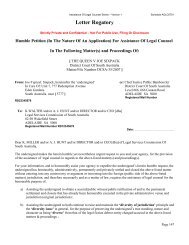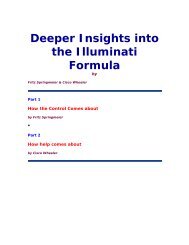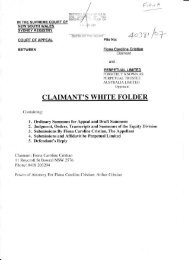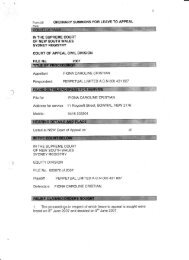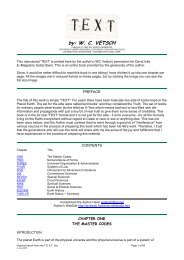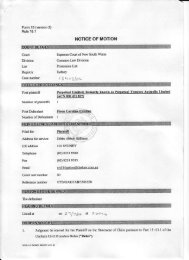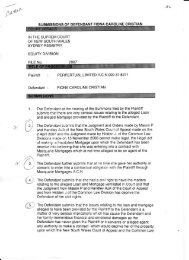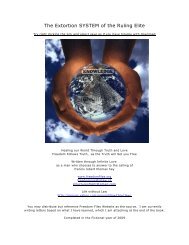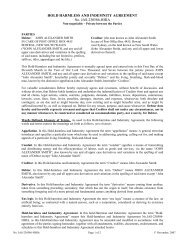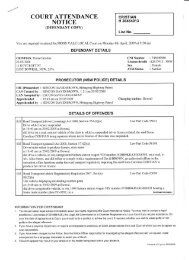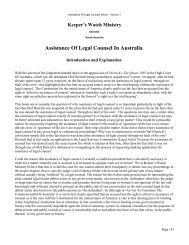THE PROTOCOLS OF THE LEARNED ELDERS OF ZION
THE PROTOCOLS OF THE LEARNED ELDERS OF ZION
THE PROTOCOLS OF THE LEARNED ELDERS OF ZION
Create successful ePaper yourself
Turn your PDF publications into a flip-book with our unique Google optimized e-Paper software.
PROTOCOL No. 20<br />
1. To-day we shall touch upon the financial program, which I put off to the end of my report as being the<br />
most difficult, the crowning and the decisive point of our plans. Before entering upon it I will remind you<br />
that I have already spoken before by way of a hint when I said that the sum total of our actions is settled by<br />
the question of figures.<br />
2. When we come into our kingdom our autocratic government will avoid, from a principle of selfpreservation,<br />
sensibly burdening the masses of the people with taxes, remembering that it plays the part of<br />
father and protector. But as State organization cost dear it is necessary nevertheless to obtain the funds required<br />
for it. It will, therefore, elaborate with particular precaution the question of equilibrium in this matter.<br />
3. Our rule, in which the king will enjoy the legal fiction that everything in his State belongs to him (which<br />
may easily be translated into fact), will be enabled to resort to the lawful confiscation of all sums of every<br />
kind for the regulation of their circulation in the State. From this follows that taxation will best be covered<br />
by a progressive tax on property. In this manner the dues will be paid without straitening or ruining anybody<br />
in the form of a percentage of the amount of property. The rich must be aware that it is their duty to place a<br />
part of their superfluities at the disposal of the State since the State guarantees them security of possession of<br />
the rest of their property and the right of honest gains, I say honest, for the control over property will do<br />
away with robbery on a legal basis.<br />
4. This social reform must come from above, for the time is ripe for it - it is indispensable as a pledge of<br />
peace.<br />
WE SHALL DESTROY CAPITAL<br />
5. The tax upon the poor man is a seed of revolution and works to the detriment of the State which is hunting<br />
after the trifling is missing the big. Quite apart from this, a tax on capitalists diminishes the growth of wealth<br />
in private hands in which we have in these days concentrated it as a counterpoise to the government strength<br />
of the GOYIM - their State finances.<br />
6. A tax increasing in a percentage ratio to capital will give much larger revenue than the present individual<br />
or property tax, which is useful to us now for the sole reason that it excites trouble and discontent among the<br />
GOYIM. (Now we know the purpose of the 16th Amendment!!).<br />
7. The force upon which our king will rest consists in the equilibrium and the guarantee of peace, for the<br />
sake of which things it is indispensable that the capitalists should yield up a portion of their incomes for the<br />
sake of the secure working of the machinery of the State. State needs must be paid by those who will not feel<br />
the burden and have enough to take from.<br />
8. Such a measure will destroy the hatred of the poor man for the rich, in whom he will see a necessary financial<br />
support for the State, will see in him the organizer of peace and well-being since he will see that it is<br />
the rich man who is paying the necessary means to attain these things.<br />
9. In order that payers of the educated classes should not too much distress themselves over the new payments<br />
they will have full accounts given them of the destination of those payments, with the exception of<br />
such sums as will be appropriated for the needs of the throne and the administrative institutions.<br />
10. He who reigns will not have any properties of his own once all in the State represented his patrimony, or<br />
else the one would be in contradiction to the other; the fact of holding private means would destroy the right<br />
of property in the common possessions of all.



